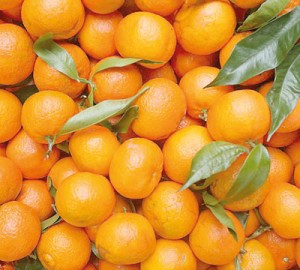Sunday Times 2
Vitamin C could halt the growth of cancer

Found in high levels in oranges, scientists discovered vitamin C starves tumours in laboratory tests. But experts warn patients could not get enough through eating the fruit
Vitamin C could help stop cancer from spreading throughout the body, controversial research suggests.
Found in high levels in oranges, kale and peppers, British scientists discovered the nutrient starves tumours in laboratory tests.
Giving patients high doses is 10 times more effective than some drugs being trialled in the battle against cancer, the study claims.
By injecting patients with it, sufferers can get up to 500 times the amount than they would through eating. But experts warn it is impossible to get the required amount through fruit, and that the results are still very early on.
Also called ascorbic acid, its effects on cancer stem cells, which are known to fuel the growth of fatal tumours, had never before been evaluated.
However, University of Salford researchers believe they have pinpointed exactly how it starves cancer stem cells.
By inhibiting the breakdown of glucose, the mitochondria — considered the ‘powerhouse’ of cells — are unable to gain vital energy it needs to thrive.
Study author Dr Michael Lisanti said: ‘Vitamin C is cheap, natural, non-toxic and readily available so to have it as a potential weapon in the fight against cancer would be a significant step.’
Given as an add-on to chemotherapy, it could be used to prevent tumour recurrence and further progression of the disease.
It has been studied internationally as a potential treatment for cancer patients for more than four decades.
Despite being known to help boost the immune system, proven results for its effects on cancer have been relatively scarce.
Previous research has even shown that it increases the risk of the disease by triggering a biological process that damages DNA.
(c) Daily Mail, London

